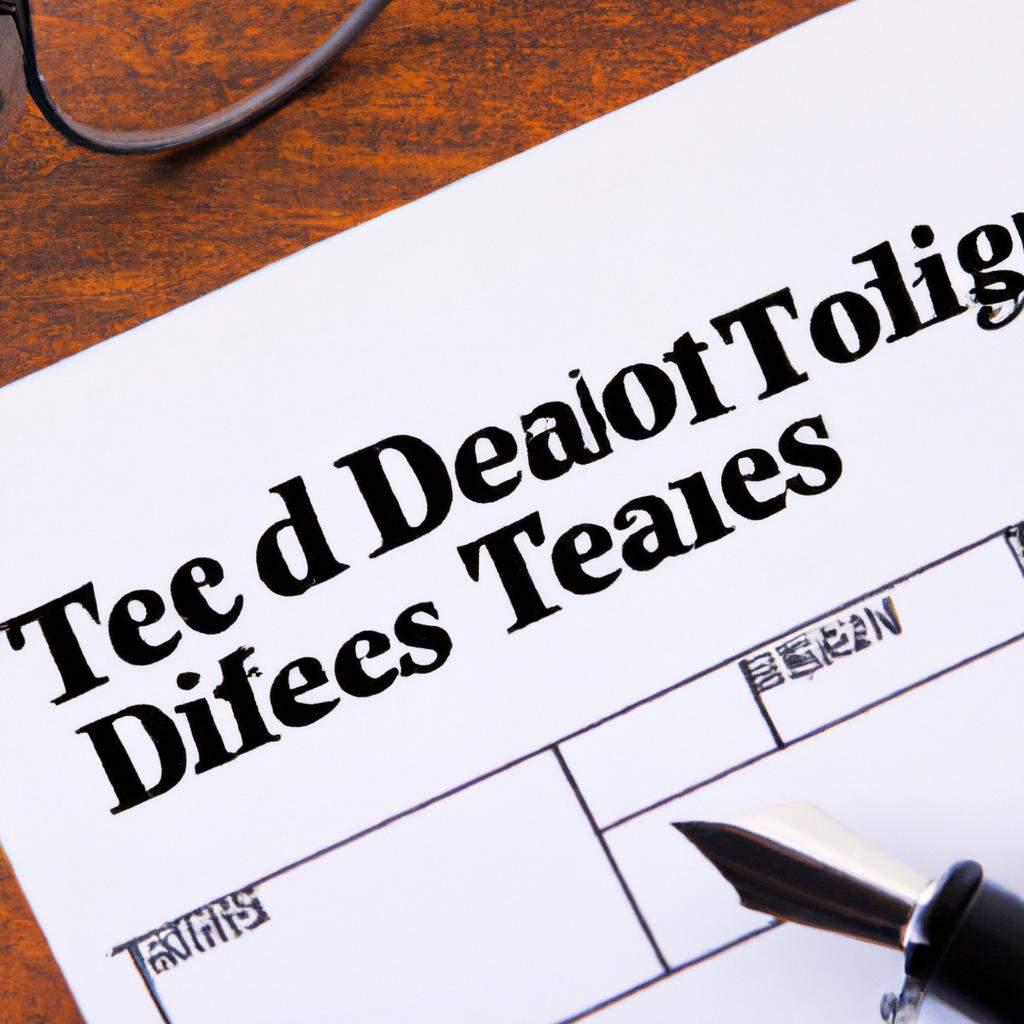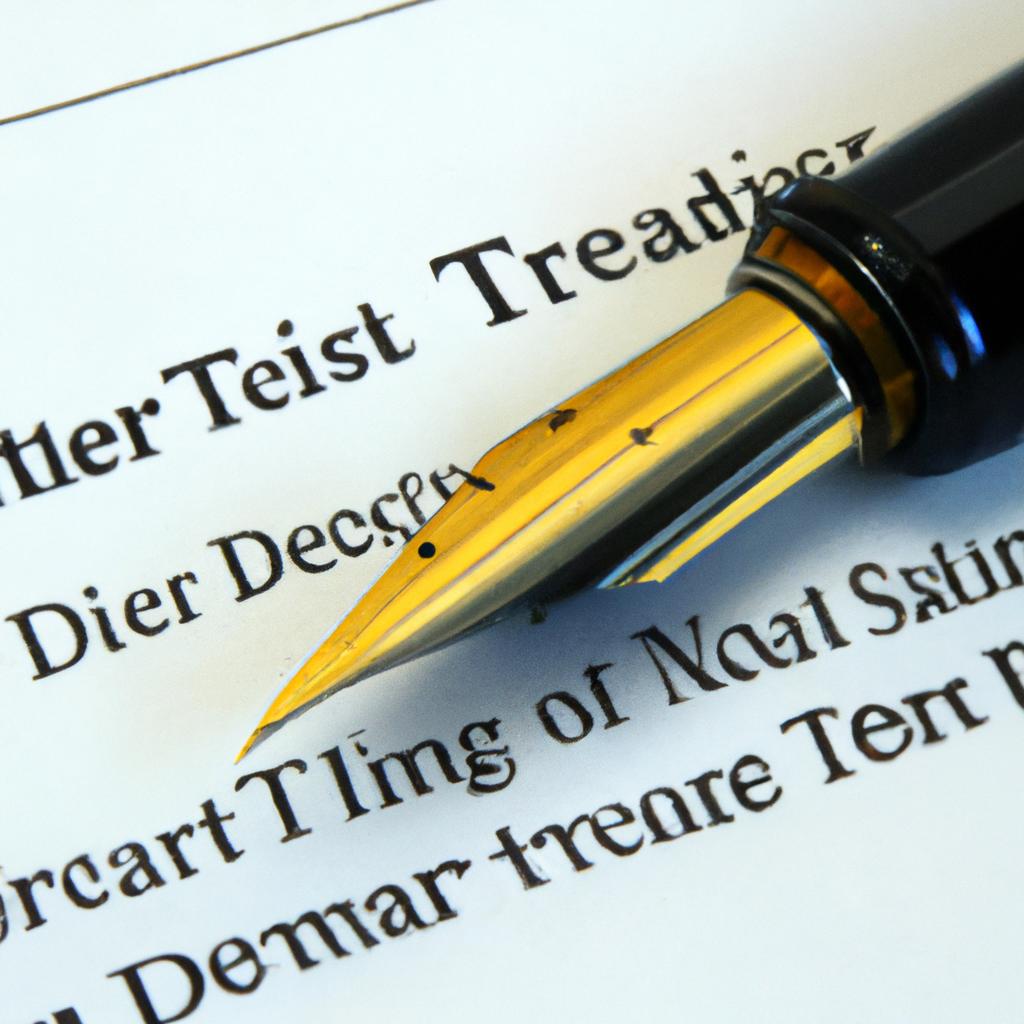As seasoned legal practitioners at Morgan Legal Group in bustling New York City, we navigate the complex realm of estate planning with finesse and precision. Today, we delve into the intricate legal concept known as transfer on death deeds. This innovative estate planning tool allows individuals to pass on real property seamlessly upon their demise, avoiding the cumbersome probate process. Join us as we unravel the nuances of transfer on death deeds and explore how this technique can streamline the transfer of assets for a more efficient and effective estate plan.
Understanding Transfer on Death Deeds
Transfer on Death Deeds, also known as TOD deeds, are a valuable tool in estate planning that allow property owners to transfer their real estate assets to beneficiaries upon their death, without the need for probate. This type of deed provides an efficient and cost-effective way to ensure that your property passes to your chosen heirs without the delays and expenses associated with the probate process.
One of the key benefits of Transfer on Death Deeds is that they allow property owners to retain full control and ownership of their real estate assets during their lifetime. Upon the owner’s death, the property automatically transfers to the designated beneficiary, avoiding the need for court involvement. This can provide peace of mind to property owners knowing that their assets will be passed on according to their wishes, without the risk of them being tied up in probate court. It is important to consult with an experienced estate planning attorney to ensure that a Transfer on Death Deed is the right option for your specific circumstances.

Exploring the Benefits of TOD Deeds in Estate Planning
Transfer on Death (TOD) deeds are a valuable tool in estate planning that allow for the transfer of real property to designated beneficiaries upon the owner’s passing. This method of property transfer bypasses the probate process, saving time and costs for the beneficiaries. TOD deeds provide a quick and efficient way of passing on real estate assets while maintaining privacy and avoiding potential disputes.
One of the key benefits of using TOD deeds in estate planning is the ability to specify multiple beneficiaries for a property. This allows for a seamless transfer of ownership to all designated individuals, avoiding the complexities of probate and ensuring that each beneficiary receives their intended share. Additionally, TOD deeds offer flexibility in designating contingent beneficiaries in case the primary beneficiaries are unable to inherit the property.

Key Considerations When Using Transfer on Death Deeds
When utilizing transfer on death deeds, there are several key considerations to keep in mind to ensure the smooth transfer of your assets to your desired beneficiaries:
- Beneficiary Designation: It is crucial to accurately name your beneficiaries on the deed to avoid any confusion or disputes.
- Updated Information: Regularly review and update your transfer on death deed to reflect any changes in your beneficiaries or assets.
Additionally, be mindful of any potential pitfalls such as:
- Legal Requirements: Ensure that your transfer on death deed complies with all legal requirements in your state to prevent any challenges to its validity.
- Consultation: Seek the advice of an experienced attorney to guide you through the process and ensure that your wishes are accurately reflected in the deed.

Navigating the Legal Requirements for TOD Deeds in New York City
When it comes to Transfer on Death (TOD) deeds in New York City, navigating the legal requirements can be a complex process. Probate avoidance is a key benefit of TOD deeds, as they allow for direct transfer of real property to designated beneficiaries upon the owner’s death, bypassing the need for probate court involvement. However, it is crucial to ensure that all legal requirements are met to successfully execute a TOD deed.
One important legal requirement for TOD deeds in New York City is properly completing the deed form, which must comply with state laws and regulations. Additionally, it is essential to properly record the TOD deed with the appropriate government office to ensure its validity. Seeking legal guidance from an experienced estate planning attorney can help navigate the intricate legal requirements and ensure a smooth transfer of property to designated beneficiaries.
Q&A
Q: What is transfer on death (TOD) deed?
A: Transfer on death (TOD) deed is a legal document that allows property owners to designate a beneficiary who will inherit the property upon their death, without the need for probate.
Q: How does a TOD deed differ from a traditional will?
A: A TOD deel differs from a traditional will in that it allows for the transfer of the property directly to the designated beneficiary upon the property owner’s death, bypassing the probate process.
Q: Are there any limitations to using a TOD deed?
A: There are some limitations to using a TOD deed, such as the fact that it only applies to real property and cannot be used for other types of assets or property.
Q: What are the benefits of using a TOD deed?
A: Some benefits of using a TOD deed include avoiding the probate process, which can be time-consuming and expensive, as well as ensuring that the property passes directly to the intended beneficiary without any disputes.
Q: Can a TOD deed be revoked or changed?
A: Yes, a TOD deed can be revoked or changed at any time as long as the property owner is still mentally competent to do so. This can be done by simply filing a new deed with the appropriate authorities.
Q: In what circumstances would a TOD deed be recommended?
A: A TOD deed may be recommended for individuals who want to ensure a smooth transfer of their property to a designated beneficiary without the need for probate, or for those who have simple estate planning needs and want to avoid the complications of a traditional will.
In Retrospect
In conclusion, transfer on death deeds offer a convenient and efficient way to transfer real estate assets upon the death of the owner. By utilizing this option, individuals can ensure that their properties are passed on to their chosen beneficiaries without the need for probate. Whether you are looking to simplify your estate plan or avoid potential complications in the future, a transfer on death deed may be a valuable tool to consider. Consult with a legal professional to determine if this option is right for you and your specific circumstances. Thank you for reading and may your future estate planning endeavors be successful and stress-free.

